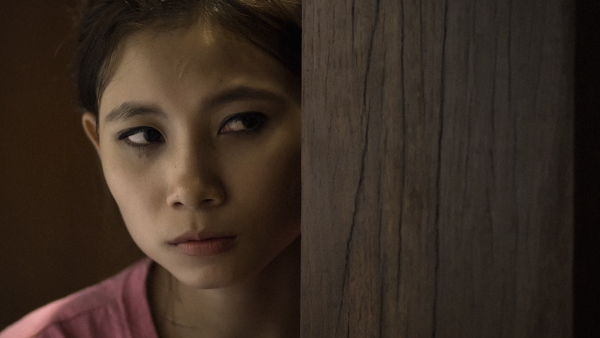 People say that there is art through adversity. As such, to begin, it’s worth stating that Mattie Do‘s latest feature is the 13th film to come out of Laos… in its history. Furthermore, it is worth noting that she is a female filmmaker in a Marxist state. So while the country is fraught with local censorship, Do is able to deliver quality films in a place where there is no film industry or infrastructure for that kind of entertainment.
People say that there is art through adversity. As such, to begin, it’s worth stating that Mattie Do‘s latest feature is the 13th film to come out of Laos… in its history. Furthermore, it is worth noting that she is a female filmmaker in a Marxist state. So while the country is fraught with local censorship, Do is able to deliver quality films in a place where there is no film industry or infrastructure for that kind of entertainment.
Creative struggles are one thing, but judging the finished product, Dearest Sister is an admittedly hard film to review. The premise seems straightforward, yet vague enough to pique your interest: “After moving to the city, a poor woman realizes her recently blinded cousin can not only commune with the dead, but they can provide a path to much-needed wealth.” So it is the latter part of that synopsis that helps the young woman put up with the increasingly inopportune and unsavory setting she finds herself in.
It’s a difficult feature to evaluate because it’s easy to start judging the things it doesn’t do. Dearest Sister doesn’t have elaborate sets — in fact, what you’re seeing is in an actual location. And if a laundry room is too close to the actors to capture their whole frame, Do zooms in on their face, making for a claustrophobic effect that translates well. There are no establishing shots, no coverage, no pans, quick edits — there’s not even much exposition. Yet, the film doesn’t suffer from a lack of resources and it’s only after viewing that you realize how we’ve come to expect many unnecessary elements in features today.
Dearest Sister tells a story that is not specific to any region but makes the most of the awkward distant family setting. Do’s film is sluggishly paced with mundane drama that doesn’t really make a splash, particularly at Fantastic Fest, a festival known for it’s audacity. However, the slow burn tension, and ability to build upon the idea that “something” is coming without letting the cat out until the right moment, is what keeps one attentive. We are thrown into this story just like the farm raised Nok (played by Amphaiphun Phommapunya). We only know what she finds out, and in a way, that’s refreshing.
Staying in neutral for minutes on end, it makes for an often monotonous experience, but to Do’s credit, Dearest Sister doesn’t spoon-feed us anything. We are left with as many questions at the end as when we started. More of a psychological horror film, the supernatural elements here are neither malicious or benevolent – they, like the characters, simply exist. Ultimately, understanding them is a MacGuffin. We get no reason to the correlation between Nok’s cousin’s failing eye sight and specters/presence of those soon to be deceased. We get the rift between the two estranged family members and everything else is just details.
In some sequences, Dearest Sister gives into the ghost story plot points, getting closer to genre territory, but those times are as mysterious as they are unexpected, just like the plot. Other times, the film takes on a “real time” feeling that is so commonplace, it becomes rather dull. It’s meant to put you in the shoes of Amphaiphun Phommapunya, and in that respect Do can call this a success. However, there’s not much intrigue to her story, lacking tension until the last few seconds. If one sticks with it, those last few seconds are the most impacting, but the rest fails to deliver.


